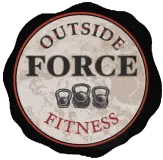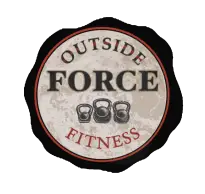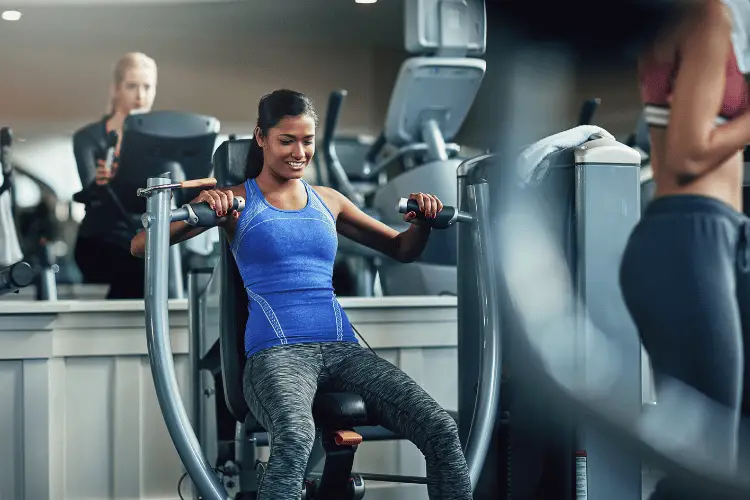I rounded up some of the most interesting facts about working out and how it can impact your health. Some of them will amaze you, while others may shock you. Yet, they’re all sure to get that pep back in your step.
To make scrolling through these fun facts easier, we divided them into categories. You’ll find sections that focus on the benefits of working out, the importance of having fitness goals, how exercise is great at any age, and more.
I also managed to debunk some common myths that quite a few people believe to be true about exercising.
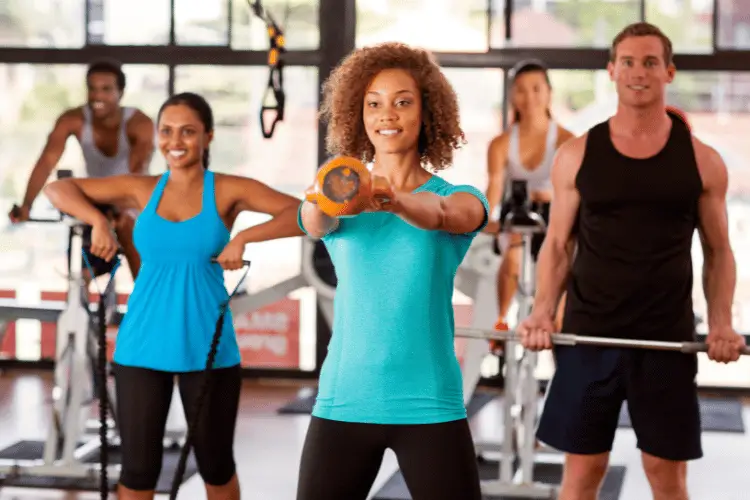
Let’s get started.
The Benefits of Regular Exercise
Take a look at some fun facts about the perks of working out and staying healthy.
- Your heart is the strongest muscle in your body. It’s also the hardest-working muscle. That’s why you always need to make sure it’s in optimal condition so it can do its job to the best of its ability. The most effective way to do that is to do cardio 3 or 5 times a week, depending on the intensity level of your workouts. A little goes a long way here.
- Looking and feeling good takes time. Fitness experts estimate that you’ll probably be able to see some fat loss and muscle gain in as little as 6 to 8 weeks of regular exercise. However, you’ll start seeing actual measurable changes in your fitness level after about 9 to 12 weeks.
- As little as 20 minutes of exercise can make you feel energized and elated. The reason is that when you’re active for some time, your brain releases ‘feel-good’ hormones, mainly endorphins. They flow into our bloodstream, boost our sense of well-being, decrease stress and anxiety levels, and diminish pain.
- Position distraction helps reduce anxiety. We already talked about feeling that rush of endorphins coursing through your system that makes you happy when you exercise. In addition to that, the movements of your workout can help produce a relaxation response. This is caused by what experts refer to as ‘position distraction,’ where you focus more on moving your joints in a certain way. As a result, it stops thinking about the daily stressors that bring about apprehension and anxiety. You essentially take your attention, which is fixated on one thing, and you put it on something else.
- Regular exercise boosts metabolism even when you’re resting. For every pound of muscle you gain, your body will burn an extra six calories per hour. This comes to an average of nearly 96 extra calories in a 24-hour period. In other words, you’ll be burning calories even when you’re not working out. The catch, however, is that you have to put in the work to boost your muscle strength first. Then, you can watch those extra calories melt away all on their own.
- Regular cardiovascular exercise stimulates the brain by increasing blood flow. When this happens, your brain gets more oxygen and nutrients. It also helps integrate new neurons and allows different parts of your brain to communicate information back and forth. Thus, working out several times a week can increase your ability to learn new skills. Plus, it can help enhance your memory, as well as your ability to focus and retain information.
- Working out helps boost your immune system. By exercising and eating right, you’re helping increase white blood cells (WBCs) and antibodies. This means you won’t get sick as often because your body is always ready to fight off any disease.
- Exercise improves your sleep routine. If you’re someone who struggles to get consistent quality sleep, try working out an hour or two before bedtime. Being physically active helps you get rid of any pent-up or negative energy you may be holding onto after a long day. Exercise can help clear your head and make you feel calmer and more relaxed.
- Working up a sweat during exercise is a good way to get a facial. As you sweat, your pores release dirt and oils, which reduces the risk of breakouts and acne.
- Your body has a little over 600 muscles. Out of those, you use approximately 200 each time you take just one step.
- Exercising has a positive effect on your digestion. As you move, blood flow increases even in the muscles you’re not actively using. This helps keep you regular, thus lowering the risk of constipation. It can also alleviate stomach cramps, heartburn, and gas. However, keep in mind that the best time to exercise is at least a couple of hours after eating, so that you have time to digest the meal.
The Importance of Having Fitness Goals
Here are a few facts about fitness goals to get you inspired.
- Muscle mass starts to deteriorate as early as the age of 30. Studies show that people who rarely work out can start losing between 3% and 5% of their muscle mass per decade. This decline is even higher after 60, with nearly 80% of muscle mass being lost due to lack of exercise. Having fitness goals that change as you age can help you stay motivated to keep exercising.
- Exercising with a buddy or a group helps keep you motivated. Hence, you’re likely to work out more often than if you were to do it alone. Having that emotional support also ensures that you hold yourself accountable because you know others are depending on you, just as you are on them. This is also where a personal trainer comes in handy.
- According to various studies, less than 5% of adults in the United States engage in 30 minutes of daily physical activity. That means only a little over 20% of adults meet the recommended guidelines for leisure-time physical activity (LTPA). Even more concerning is that one in every four adults doesn’t take part in any type of physical activity at all.
- Rest days are a vital component of your fitness plan. Scheduling rest days does more good than harm. Your body needs time to recover from your workouts, so it uses rest days to help reduce muscle strains, injuries, and joint pain. Resting also lowers the risk of overtraining and boosts your workout productivity the next time you exercise.
- For each hour of aerobic exercise, you can add two hours to your life span. This means that exercising doesn’t just improve your health right now, it also helps enhance the quality of your life years from today. It’s the best way to grow old gracefully and keep your independence as you age.
- Make sure to include some fast-paced workout music in your fitness plan. A study published in the Journal of Sports and Exercise Psychology shows that listening to music while exercising can boost your power output and improve your performance by 15%.
- Exercise helps increase your confidence and self-esteem. One of the benefits of setting fitness goals is the feeling of achievement once they are attained. You’ll be proud of all your hard work and accomplishments.
- Switch up your workout routine to effectively lose weight. Doing the same moves day after day can make you feel bored and uninspired. Plus, your body will quickly adjust and you’ll hit a plateau where you stop losing weight or improving performance. Creating a fitness plan with a wide variety of moves, intensities, and frequencies can make a huge difference when it comes to losing weight. Plus, it can also reduce the likelihood of injuries brought on by repeated stress.
Fitness for Kids
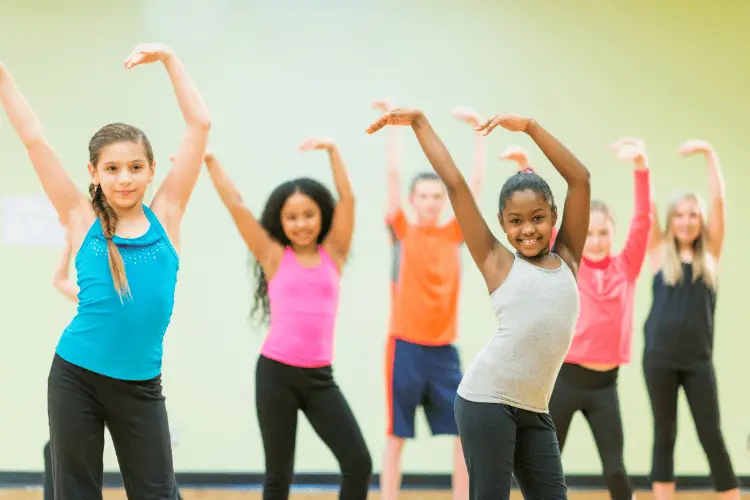
Fitness isn’t just for grown-ups. Kids need exercise too.
- More than 50% of young people aged 12–21 aren’t vigorously active. They’re not participating in sports or any physical activities at school or local youth centers. That’s a pretty scary statistic considering that this is the age when kids are super energetic and need to be active.
- Obesity in children is on the rise. Over 30% of children between the ages of six and 11 are overweight. Nearly 15% of these children are categorized as obese.
- Approximately 4,000 children and teenagers start smoking each day. Given the fact that 9 out of 10 smokers start before they’re 18, this usually leads to health complications. The most common is difficulty breathing, which affects their ability to participate in almost any type of physical activity.
- Young kids are generally discouraged from lifting weights. Experts believe there’s no rush in having them participate in an intensive weight training program. They’re better off waiting until they reach puberty or are halfway through their teenage years. It should be noted that there are highly mixed opinions on this.
- The level of a child’s physical activity is linked to their parents. Various studies highlight the correlation between how much exercise a child gets with how active the parents are. So, if you have kids, you need to show them what it takes to be in good shape by doing the work yourself.
Men vs. Women
These facts about men’s and women’s general health may surprise you.
- It’s reported that over 69% of men believe they’re physically fit. The truth is that only about 13% of men actually are.
- Women burn more fat during exercise compared to men. On the other hand, men burn more calories post-workout. This has to do with their muscle-to-fat ratio. Women’s bodies are built with more fat cells, but they tend to be better at utilizing fat for energy. Men have nearly 60% more lean muscle tissue than women, which is how they’re able to lose more calories outside of working out, when they’re resting.
- Women are less likely to bulk up. This is another example of how the different muscle-to-fat ratios between men and women can affect health and physique. There are also testosterone differences, and the fact that a woman’s body is optimized in many ways for childbirth.
Miscellaneous Exercise and Health Facts
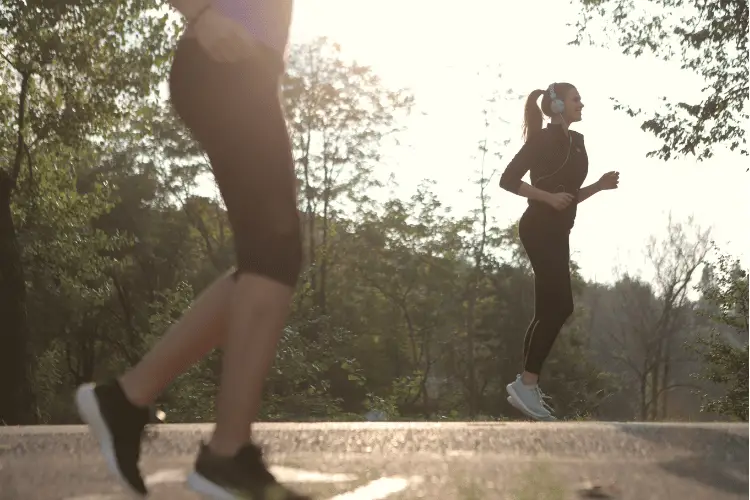
These facts aren’t part of any one category. Still, I couldn’t leave them out.
- A good exercise routine allows your body to work at its own pace. If you can’t speak a couple of words without feeling out of breath, it probably means you’re exercising at a level that’s too intense for you. Unless you’re specifically doing high intensity training, in which case I say, “Go for it!” Just do it intelligently and don’t get hurt. High intensity training gets results, but it has a higher risk of injury.
- The knee is the largest and most complex joint in your body. This makes it susceptible to injuries, strains, and dislocations compared with the rest of your joints.
- Staying hydrated is vital for maintaining healthy muscles. Not being sufficiently hydrated throughout your workouts is linked to weaker power output and performance. It also helps replace the fluids you lose due to sweat.
- When you run, the pressure exerted on your feet is nearly four times your body weight. That same pressure doesn’t just impact your feet. It also affects your ankle and knee joints. The best thing you can do is pay attention to your gait, posture, and pressure points.
- Standing can help you burn an average of between 100 and 200 calories per hour. Alternatively, you only burn an average of 60 to 130 calories per hour when sitting. Got a desk job? Consider having a desk that allows you to stand as well.
Exercise and Health Myths Debunked
You’ve probably heard these exercise and health tips before. Yet, not everything you hear is true. Many of them are either outdated or simply flat-out wrong.
Check them out to see which ones you still believe or not.
Muscle Soreness and Lactic Acid
We’ve been told time and again that muscle soreness is a result of an increase in the levels of lactic acid in the muscle fibers. This usually happens when you increase the intensity, duration, or frequency of the workout.
However, lactic acid may not be the sole culprit.
The real reason behind feeling sore a day or two after an aggressive workout is primarily due to microscopic tears in your muscle fibers.
These tears are then repaired by what’s known as muscle stem cells, or satellite cells, that replicate and fuse with the damaged muscle fibers. They then form new muscle protein strands that increase the strength and size of the muscle, which is how your muscles repair themselves and grow.
Skinny People Are Healthy
Associating weight with health is one of those rabbit holes we’ve been tricked into. It’s easy to fall into this myth because we associate obesity with heart disease, diabetes, and joint aches. So, in our minds, being skinny is synonmous with being healthy.
The truth is that you can do as much harm to your body if you’re thin as you would if you were overweight.
Always keep in mind that there’s no one ideal BMI that perfectly suits everyone. Your measure of good health should be getting regular exercise each week and eating a nutritious, balanced diet. Pay attention to your energy levels and overall wellbeing. That should be a better indicator of health.
Six-Packs Are the Epitome of a Toned Physique
The media certainly seems to think so. However, having washboard abs doesn’t make you the fittest person.
Getting those muscles chiseled in that fashion takes serious time, effort, and dedication. Yet, it takes some serious fat loss to get your abs to show. To compete in bodybuilding competitions, you’ve got to significantly dehydrate yourself so that there is no water between the skin and your muscles. It’s not uncommon for bodybuilders to pass out before, during, or after a show due to the physical stress.
So stop worrying about how defined your abs are. Instead, focus on building a strong core, which includes your abs, pelvis, and back muscles, and eating a well-balanced diet.
10,000 Steps a Day Keeps the Doctor Away
Yes, walking is an amazing way to stay in shape. No, you don’t have to put in 10,000 steps every single day.
Plus, walking by itself isn’t enough to lose weight and build muscle. You need to combine it with a well-balanced diet, cardio, and strength training.
Static Stretching Boosts Flexibility
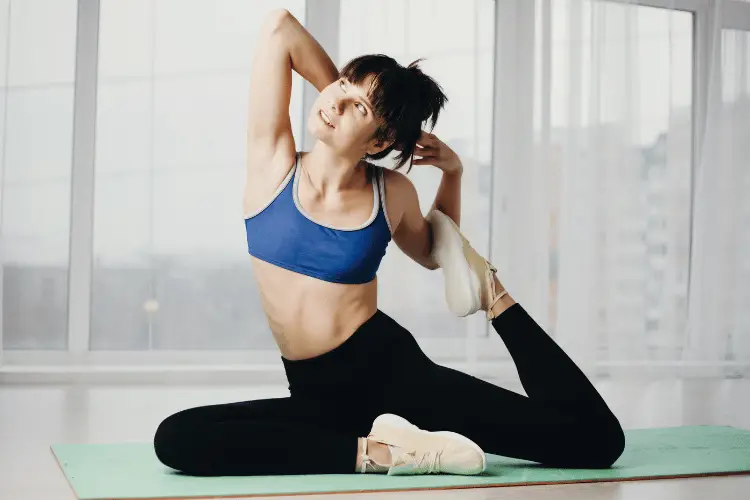
Ask anyone and they’ll tell you that stretching is good before starting any physical activity.
That part is factual. The myth, however, is in the type of stretching you should be doing before your workout.
Before, trainees were encouraged to do static stretches to warm up. This is when you hold a position for anywhere between 30 and 45 seconds.
However, science now tells us that static stretches are pretty much useless. Not only that, but they can affect your performance by reducing your overall power output, if done prior to exercise.
The type of stretching you should be doing is called ‘dynamic stretching.’ This type of stretching helps reduce the risk of injuries and muscle fatigue while helping your body prepare for the upcoming workout.
Wrapping Up
There’s no doubt that staying physically active should be part of your daily routine. Exercise is vital for maintaining your physical, mental, and emotional health.
I hope these fun facts about exercise and health can help motivate you to get the results you need to stay healthy and strong.
References:
- https://www.athletico.com/2018/04/09/exercise-really-make-happy/
- https://www.cdc.gov/tobacco/sgr/50th-anniversary/pdfs/fs_smoking_youth_508.pdf
- https://www.cdc.gov/obesity/data/childhood.html
- https://www.thelancet.com/article/S2352-4642(19)30323-2/fulltext
- https://www.clubindustry.com/fitness-studies/only-23-percent-americans-meet-national-exercise-guidelines
- https://www.livescience.com/why-are-rest-days-important
- https://www.healthline.com/health-news/how-long-to-get-in-shape
- https://www.loc.gov/everyday-mysteries/biology-and-human-anatomy/item/what-is-the-strongest-muscle-in-the-human-body/
- https://www.healthline.com/health/how-often-should-you-work-out
- https://www.uc.edu/content/dam/uc/ce/images/OLLI/Page%20Content/Muscular%20System%20s.pdf
- https://youplushealthusa.com/blog/1lb-of-fat-vs-1lb-of-muscle-lets-clear-up-the-misconceptions-for-maximal-weight-loss3/
- https://www.massgeneral.org/children/inflammatory-bowel-disease/tips-to-manage-stress-with-the-relaxation-response
- https://lifesciences.byu.edu/how-exercise-affects-your-brain
- https://www.ninds.nih.gov/health-information/public-education/brain-basics/brain-basics-life-and-death-neuron
- https://www.childrens.com/health-wellness/what-age-can-you-start-lifting-weights
- https://longevity.technology/lifestyle/what-happens-to-your-muscles-during-exercise-and-recovery/
- https://health.gov/our-work/nutrition-physical-activity/physical-activity-guidelines/current-guidelines
- https://www.hss.edu/article_static_dynamic_stretching.asp
- https://medlineplus.gov/ency/article/007165.htm
- http://www.scientificamerican.com/article/psychology-workout-music/
- https://www.usdermatologypartners.com/blog/will-exercising-improve-my-skin/
- https://www.physio-pedia.com/Walking_-_Muscles_Used
- https://sportscardiologybc.org/the-effects-of-hydration-on-athletic-performance/
- https://ijbnpa.biomedcentral.com/articles/10.1186/s12966-020-00966-z
- https://www.sciencedaily.com/releases/2016/10/161004081548.htm
- https://www.physio-pedia.com/Gait
- https://www.manhattangastroenterology.com/exercise-affects-digestion/
- https://bsd.biomedcentral.com/articles/10.1186/s13293-018-0189-3
- https://academic.oup.com/biomedgerontology/article/61/10/1059/600461
- http://www.shapefit.com/visualization-techniques-workouts.html
